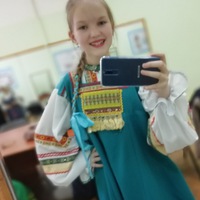
Защита прав человека в российской федерации
 0
0
 0
0
Ответы на вопрос
 Внимание! Ответы на вопросы дают живые люди. Они могут содержать ошибочную информацию, заблуждения, а также ответы могут быть сгенерированы нейросетями. Будьте внимательны. Если вы уверены, что ответ неверный, нажмите кнопку "Пожаловаться" под ответом.
Внимание! Ответы на вопросы дают живые люди. Они могут содержать ошибочную информацию, заблуждения, а также ответы могут быть сгенерированы нейросетями. Будьте внимательны. Если вы уверены, что ответ неверный, нажмите кнопку "Пожаловаться" под ответом.

 0
0
 0
0

Protection of Human Rights in the Russian Federation
The protection of human rights in the Russian Federation is an important aspect of the country's legal framework. The Russian Constitution guarantees fundamental human rights and freedoms to its citizens. These rights are protected by various laws and institutions at both the national and international levels.
Constitutional Protections: The Russian Constitution, adopted in 1993, provides a comprehensive framework for the protection of human rights. It guarantees a range of civil, political, economic, social, and cultural rights to all individuals within the country's jurisdiction. Some of the key rights protected by the Constitution include the right to life, liberty, and security of person; freedom of expression, assembly, and association; and the right to a fair trial.
Legislation: In addition to the Constitution, Russia has enacted several laws to protect human rights. The Law on Human Rights Ombudsman, for example, establishes the institution of the Commissioner for Human Rights, who is responsible for monitoring and protecting human rights in the country. The Law on Public Associations ensures the right to freedom of association, allowing individuals to form and join non-governmental organizations (NGOs) to promote and protect human rights.
International Obligations: Russia is a party to various international human rights treaties, including the International Covenant on Civil and Political Rights (ICCPR) and the International Covenant on Economic, Social, and Cultural Rights (ICESCR). These treaties impose obligations on the Russian government to respect, protect, and fulfill the rights enshrined in them. Russia has also ratified regional human rights instruments, such as the European Convention on Human Rights (ECHR), which allows individuals to bring complaints before the European Court of Human Rights.
Human Rights Institutions: The Commissioner for Human Rights, also known as the Human Rights Ombudsman, is an independent institution established to protect human rights in Russia. The Ombudsman investigates complaints of human rights violations, provides legal assistance to individuals, and promotes human rights education and awareness. The Ombudsman's office plays a crucial role in monitoring the human rights situation in the country and advocating for necessary reforms.
Challenges and Concerns: Despite the legal framework in place, there have been concerns raised by international organizations and civil society groups regarding the protection of human rights in Russia. These concerns include restrictions on freedom of expression and assembly, limitations on the activities of NGOs, and the treatment of certain vulnerable groups, such as LGBT individuals and political dissidents. It is important for the Russian government to address these concerns and ensure the effective protection of human rights for all individuals within its jurisdiction.
Conclusion: The protection of human rights in the Russian Federation is a complex and evolving issue. While the country has established legal mechanisms and institutions to safeguard human rights, there are ongoing challenges and concerns that need to be addressed. It is crucial for the Russian government to uphold its domestic and international obligations and work towards ensuring the full realization of human rights for all individuals in the country.
 0
0
 0
0
Топ вопросов за вчера в категории Обществознание
Последние заданные вопросы в категории Обществознание






-
Математика
-
Литература
-
Алгебра
-
Русский язык
-
Геометрия
-
Английский язык
-
Химия
-
Физика
-
Биология
-
Другие предметы
-
История
-
Обществознание
-
Окружающий мир
-
География
-
Українська мова
-
Информатика
-
Українська література
-
Қазақ тiлi
-
Экономика
-
Музыка
-
Право
-
Беларуская мова
-
Французский язык
-
Немецкий язык
-
МХК
-
ОБЖ
-
Психология
-
Физкультура и спорт
-
Астрономия
-
Кыргыз тили
-
Оʻzbek tili















